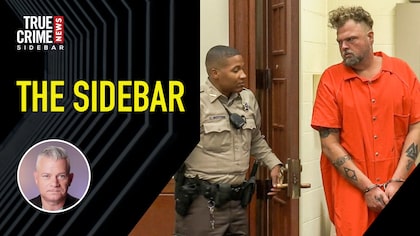Dash's Docket: How Facebook Can Undermine a Self-Defense Claim & Enhance Punishment
05/04/2017 11:13 am PDT
Legal Analysis by Amy Dash
Derek Medina is the Florida man who shocked the world when he posted a picture of his wife's dead body to Facebook after he killed her. He was sentenced to life in prison but is eligible for parole after 25 years.
Medina claimed he was forced to kill his wife, Jennifer Alfonso, following years of physical abuse. He told police that he shot her during an altercation in which she threatened him with a knife. Unfortunately for him, jurors didn't buy his self-defense claim -- probably because he shot her eight times.
But the case highlights a new reality: the role of social media on the outcomes of trials.
The Facebook post not only undermines Medina's self-defense claim, but it also becomes a factor bearing upon his sentencing.
WATCH: FLORIDA MAN KILLS WIFE IN KITCHEN, POSTS PHOTO TO FACEBOOK 'SO THE FAMILY WOULD KNOW' - CWD
The act of taking the picture and posting it for the world to see supports the prosecution's claim that this was a cold-blooded murder. Besides being a flat out confession, it helped prove the elements needed to secure a second-degree murder conviction. For both first-degree and second-degree murder, the act required is the same: killing someone.
Proving one or the other depends on establishing someone's mental state, which can be very difficult. Medina made it easy. To get a second-degree murder conviction, the state must prove Medina possessed a depraved state of mind in which he is unconcerned for the lives of others. What shows more of an indifference to human life than posting your dead wife's body on Facebook shortly after killing her? Bingo, state of mind established, thanks to a social media post.
Often sentencing is left to the discretion of the judge, or the jury, as in death penalty cases. The heinousness of the crime factors into the sentence. It's safe to say that Medina's Facebook post didn't gain him any favors in the sentencing phase, and probably played a big role in his life sentence. The judge threw the book at Medina, saying: "You foretold your future. You wrote on Facebook that 'I am going to prison,' and that is where you will be going."
The law is still unsettled when it comes to social media and evidence.
A new wave of crime sprees online, often in real time, raises questions about social media posts as evidence in criminal trials: Should social media posts be admissible in court? What if they are created after the crime was committed? What if they are live? What if others interact with the post -- should they be held liable? And are social media channels like Facebook and Twitter fast enough to remove such content, or preserve the content for law enforcement? How should social media be policed and what role should it play in a criminal trial?
WATCH: FLORIDA MAN KILLS WIFE IN KITCHEN, POSTS PHOTO TO FACEBOOK 'SO THE FAMILY WOULD KNOW' - CWD
Legal Correspondent Amy Dash is a two-time Emmy Award winning reporter and producer who focuses her insight on the hottest legal topics to take viewers beyond the gossip to see the big picture: Why cases matter. Amy provides expert legal analysis and is a traveling correspondent covering some of America's most perplexing cases in-depth.










